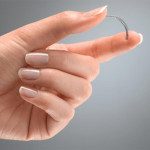![How the 21st Century Cures Act will affect medical devices]() The U.S. Senate overwhelmingly passed the 21st Century Cures Act yesterday, after the U.S. House voted to enact the healthcare measure last week. The bill will move to President Barack Obama’s desk and he is expected to sign it into law soon.
The U.S. Senate overwhelmingly passed the 21st Century Cures Act yesterday, after the U.S. House voted to enact the healthcare measure last week. The bill will move to President Barack Obama’s desk and he is expected to sign it into law soon.
The sweeping healthcare legislation has a number of provisions that are intended to improve the regulatory process for medical devices, such as the requirement that the FDA establish a Breakthrough Devices program to provide priority review for devices that yield “more effective treatment or diagnosis of life threatening or irreversibly debilitating human disease or conditions”.
The Breakthrough Devices program aims to help bring technology to the market for conditions with no cleared or approved alternatives. This provision will build upon the FDA’s Expedited Access Pathway, adding priority review to device types subject to 510(k) clearance, as well as PMA approval and de novo requests.
The FDA’s Humanitarian Device Exemption program, which allows approval for devices that address rare diseases, will be expanded. The revised program will double the ceiling, allowing approval of devices for diseases or conditions that affect up to 8,000 people annually.
The bill will allow any party to obtain a ruling from the FDA within 60 days on recognition of a standard. The FDA must make the ruling public and FDA employees must undergo periodic training in the use of standards in premarket review, according to the provision.
In an effort to clarify which device types require 510(k) clearance, the FDA will be required, early next year and then once every 5 years, to review class I and class II devices and consider whether they may be declared 510(k) exempt. After determining which devices are exempt, the FDA will publish a list of newly exempted device types. Class II exemptions will include a proposed list and a period of time for public comment before the final list is published.
Classification panels are also being affected by the bill, which includes a provision that requires the FDA to ensure that every panel has “adequate expertise” to assess the disease which the device is intended to cure, treat, mitigate, prevent or diagnose, as well as the device’s technology. The company will have a chance to recommend what sort of expertise the voting members of the classification panel will need.
The FDA will have an yearly opportunity for patients, patient representatives, and sponsors of medical device submissions to give recommendations for individuals with clinically relevant expertise to fill the voting member positions.
In multicenter device trialS, Institutional Review Boards were previously required by the FDA to be at every center. Instead, a provision in the 21st Century Cures Act allows for 1 IRB to oversee the trial, adding flexibility and hopefully making oversight more efficient.
One provision gives the FDA a year-long deadline to revise the organization’s 2008 guidance on Clinical Laboratory Improvement Amendment waivers for in vitro diagnostic devices. The section calls for the FDA to replace the requirement to demonstrate accuracy based upon a gold standard, making it easier for some IVD tests to be exempted from CLIA requirements like routine inspections.
The medical device industry has long held the position that the Center for Devices and Radiological Health does not comply with the requirement to determine the “least burdensome means” of establishing substantial equivalence or effectiveness of a device. One of the bill’s provisions will require each reviewer at the CDRH to receive training “regarding the meaning and implementation of the least burdensome requirements.”
The FDA will also assess implementation of the least burdensome requirements to ensure that they are applied. The section also says that if the FDA requests additional information from a PMA applicant, the organization “shall consider the least burdensome appropriate means necessary to demonstrate a reasonable assurance of device safety and effectiveness.”
Recent issues with disease transmission between patients because of inadequate cleaning of duodenoscopes led to a provision which says that the FDA has 180 days following the enactment of the 21st Century Cures Act to publish a list of reusable device types where 510(k) submissions need to include valid instructions for use and data for cleaning, disinfection and sterilization. The same provision includes a requirement for the FDA to finalize the draft from August, providing guidance on when a new 510(k) is required for modifications to a previously cleared device.
Finally, the bill has a provision that clarifies the FDA’s role in regulating medical software. The FDA has regulated image analysis software and IVD technology and will continue doing so once the 21st Century Cures Act is signed into law. But, under this provision, the FDA will not regulate software that uses “big data” to provide clinical decision support to healthcare professionals. The section has a few exceptions for software that collects patient information and data if it “would be reasonably likely to have serious adverse health consequences.”
The same section also says that the FDA will regulate accessories based on their intended use, instead of based upon the parent device with which the accessories are intended to be used. This position is a 180 for the organization, which as historically maintained that accessories should take on the classification of their parent devices.
The post How the 21st Century Cures Act will affect medical devices appeared first on MassDevice.
![]()
 Verily Life Sciences, the healthcare play owned by Google parent Alphabet (NSDQ:GOOGL), said this week it launched the Liftware Level smart utensil designed to aid individuals with limited hand or arm mobility.
Verily Life Sciences, the healthcare play owned by Google parent Alphabet (NSDQ:GOOGL), said this week it launched the Liftware Level smart utensil designed to aid individuals with limited hand or arm mobility. Medical Google Glass startup
Medical Google Glass startup  The U.S. Senate
The U.S. Senate 

 The U.S. Justice Dept. and
The U.S. Justice Dept. and 




 The medical device tax is likely to quickly be on the chopping block under the incoming Donald Trump administration.
The medical device tax is likely to quickly be on the chopping block under the incoming Donald Trump administration.
 Researchers from
Researchers from 






 Two French women who’ve used
Two French women who’ve used 
 After Britain’s vote to withdraw from the European Union, medical device companies have been facing an uncertain future in the region.
After Britain’s vote to withdraw from the European Union, medical device companies have been facing an uncertain future in the region.